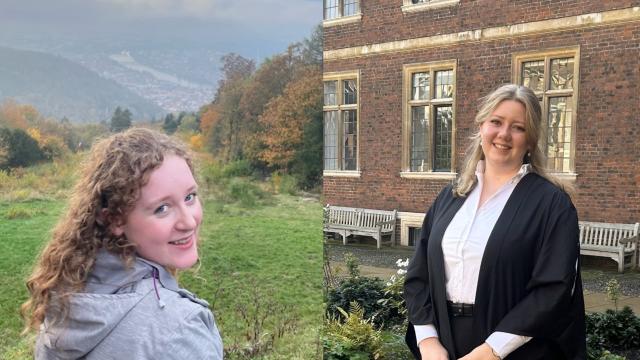
In June 2019, St Catharine’s College hosted the Environmental Audit Committee (EAC) for a public evidence hearing, chaired by Mary Creagh MP. This was part of the collaboration between the committee and the Biosecurity Research Initiative at St Catharine’s College (BioRISC), which is generously funded by The David and Claudia Harding Foundation.
On 25 October 2019, the House of Commons Environmental Audit Committee published their first report of session 2019-20 on Invasive Species. The report includes evidence given to the committee and proposals to positively affect environmental protection and sustainability targets.
The BioRISC team documented to the committee that the number of Invasive Non-Native Species in the UK and its Overseas Territories is among the highest globally and their presence is growing with the expansion of international trade, transport and travel. St Catharine’s Fellow, Dr David Aldridge (1997), as a member of BioRISC, provided evidence to the committee on the importance of changing patterns of global trade in driving the introduction of new invaders. He also commented on the effectiveness of a recent horizon scan he had contributed to that identified the 10 invasive species least wanted in the UK.
“In the last five years, I think eight of that top 10 have established in the UK, so that might show that we are very good at predicting future invaders, but probably we are rubbish at preventing them from establishing. Horizon scanning is good but it is only good if we can then do something with that information.”
Dr David Aldridge (1997)
On the recommendation of BioRISC, the committee has called for a dedicated border force to be established by 2020 with the aim to improve biosecurity at UK borders. They suggested that more effective border controls and quarantine facilities should be put into place focussing on not just economic pests but also on stowaways or accidentally transported species, which are currently being overlooked.
BioRISC noted that without horizon scanning to consider probable invasive species, and systematic reviewing of the evidence to plan responses “we are likely to be ill-prepared for future arrivals”. A spokesman for the Department for Environment, Food and Rural Affairs (DEFRA) told us that it was concerned about “sleeper species”, which are already present in the UK that may develop invasive qualities triggered by climate change. The Environmental Audit Committee chairwoman Mary Creagh, stated that climate change is putting "the future of our natural landscape at risk".
The report also called for the government to set up a rapid-response emergency fund to enable agencies to tackle a threat, and suggested that a large taskforce of 1.3 million people be taught how to spot "outbreaks" of invasive species.
The DEFRA spokesman added: "Invasive non-native species not only challenge the survival of some of our rarest species but damage our natural ecosystems as well as costing the economy more than £1.7bn per year. We are committed to being leaders in tackling invasive species, and our 25-year Environment Plan commits us to enhancing the biosecurity of the country even further. We welcome the EAC's report and will now carefully consider its findings and recommendations."


